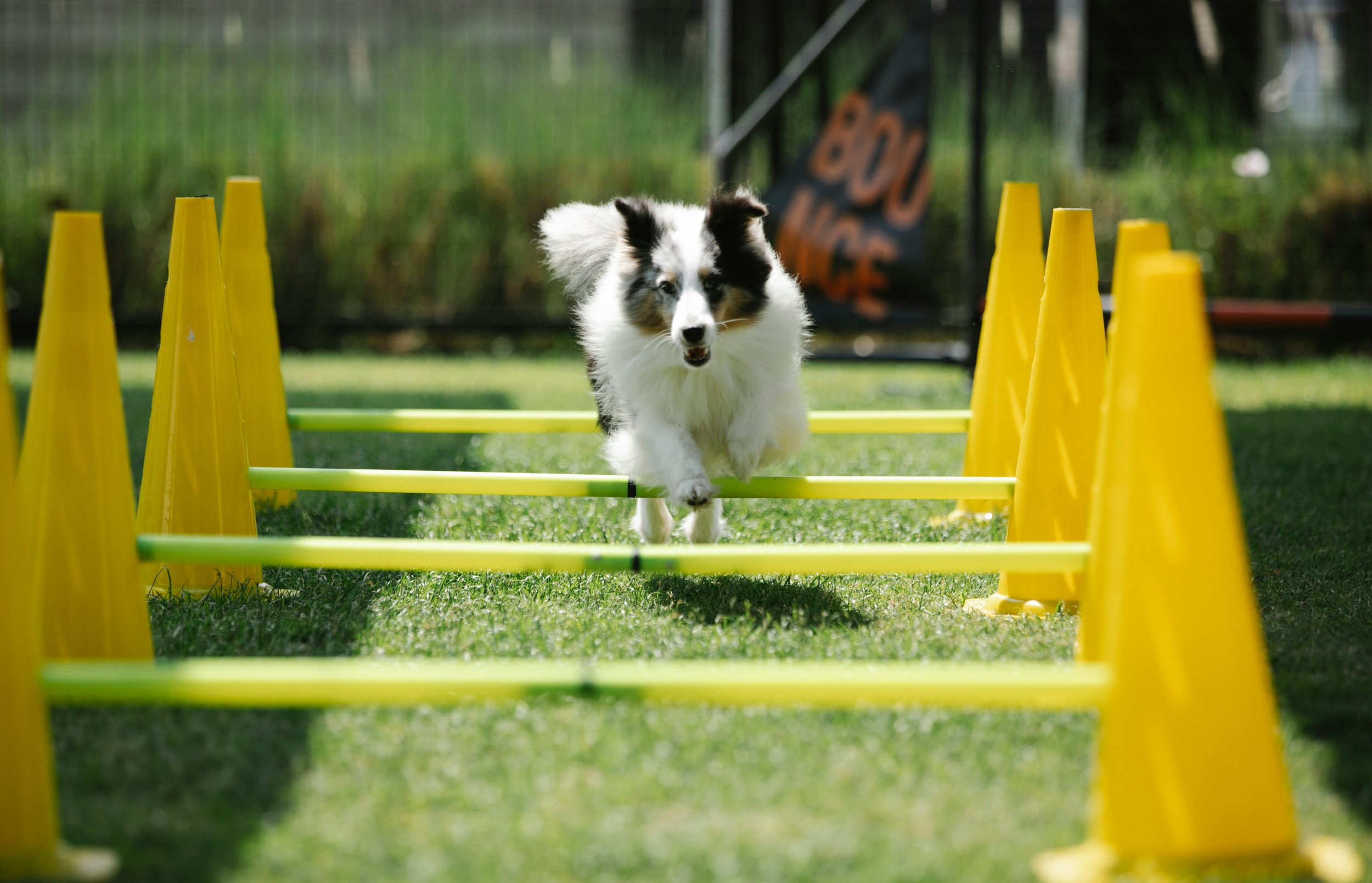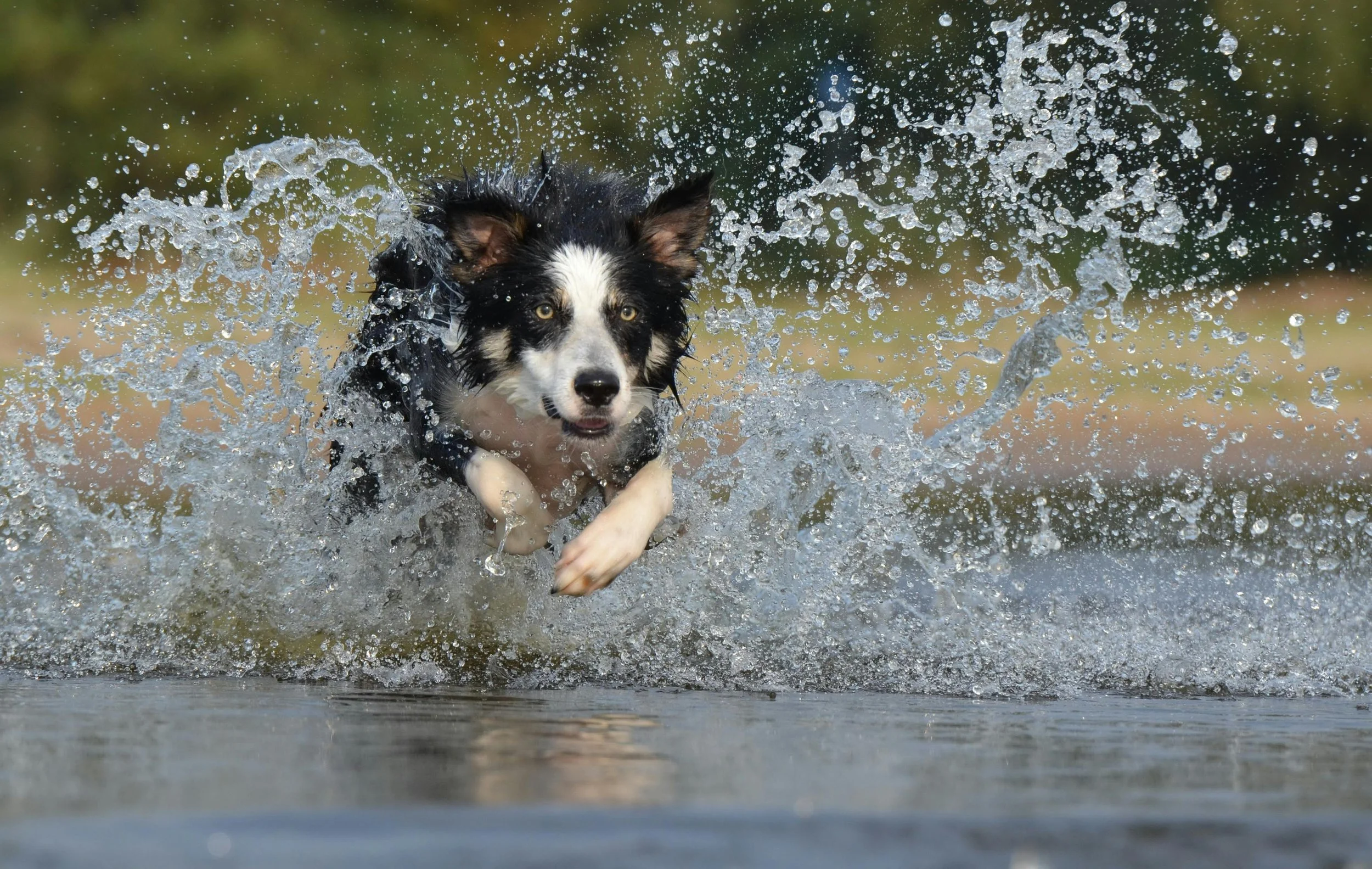
What is Animal Physiotherapy?
Reduce pain and improve health ✓
Animal/Veterinary physiotherapy is a specialised, complementary field of veterinary medicine focused on the rehabilitation, health, and well-being of animals.
It involves the use of various techniques such as manual therapy, therapeutic exercises, hydrotherapy, and electrotherapy to treat musculoskeletal, neurological, and soft tissue conditions, by stimulating the bodies natural healing process.
The goal of animal physiotherapy is to enhance mobility, reduce pain, promote healing, and improve the overall quality of life for animals recovering from surgery, injury, or suffering from chronic conditions. By employing tailored treatment plans, animal physiotherapists work to restore function and support the long-term health of pets and working animals alike.
What are the benefits?
Animal physiotherapy offers numerous advantages for the health and well-being of pets and working animals. The sooner we can start rehabilitation after an operation of injury the more successful the benefits are. Physiotherapy is a holistic approach, which treats the whole animal and not just the specific issue.
Key benefits include:
✓ Pain Relief:
Through techniques such as manual therapy, electrotherapy, and hydrotherapy, physiotherapy helps alleviate pain associated with injuries, arthritis, and other chronic conditions.
✓ Improved Mobility:
Physiotherapy enhances joint flexibility, muscle strength, and overall mobility, which is particularly beneficial for animals recovering from surgery or those with mobility impairments.
✓ Enhanced Recovery:
Tailored rehabilitation programs accelerate the healing process following surgery or injury, reducing recovery time and helping animals return to their normal activities sooner.
✓ Chronic Condition Management:
For animals with chronic conditions like arthritis or hip dysplasia, regular physiotherapy sessions can manage symptoms, improve quality of life, and prevent the progression of the disease.
✓ Injury Prevention:
By improving strength, balance, and coordination, physiotherapy can help prevent future injuries, particularly in active or working animals.
✓ Behavioral Improvements:
Regular physiotherapy can reduce stress and anxiety in animals, leading to improved behavior and a calmer demeanor.
✓ Customized Care:
Each physiotherapy plan is tailored to the individual needs of the animal, ensuring that treatments are specific and effective for their particular condition and lifestyle.
✓ Weight Management:
Physiotherapy, combined with proper diet and exercise, supports weight loss and management, which is crucial for overall health and reducing strain on joints and muscles.
Through these benefits, animal physiotherapy plays a crucial role in enhancing the health, comfort, and longevity of animals.
Treatments
Treatments are tailored to your pets needs, based on the veterinary diagnosis, findings from the initial assessment and overall goals.
Treatment techniques include:
✓ Manual therapies
Massage
Myofascial release
Passive range of motion exercises
Passive stretches
✓ Active exercises
Active range of motion exercises
Active stretches
Core strength and stability work
Proprioceptive work
✓ Electrotherapies
Therapeutic ultrasound
Pulsed electromagnetic field therapy
Photobiomodulation Therapy (Laser therapy)
✓ Thermotherapies
Heat
Cold
A post treatment home program is provided to help support and continue your animal or pets rehabilitation.
A post treatment home program is provided to help support and continue your animal or pets rehabilitation.
If you think your animal may benefit from physiotherapy treatment or are unsure as to whether your animal will benefit from treatment, please don’t hesitate to get in touch.
Conditions Physiotherapy can help dogs with
Animal physiotherapy can address a wide range of conditions in dogs, contributing to their recovery and overall well-being.
Common conditions that physiotherapy can help with include:
Osteoarthritis:
Physiotherapy helps manage pain, reduce inflammation, and improve joint mobility for dogs suffering from arthritis.
Hip and Elbow Dysplasia:
Through targeted exercises and therapies, physiotherapy can strengthen the muscles around the hip joint, alleviating pain and improving function.
Cruciate Ligament Injuries:
Post-surgery rehabilitation or conservative management through physiotherapy can enhance recovery, restore mobility, and strengthen the affected leg.
Spinal Injuries and Conditions:
Conditions such as intervertebral disc disease (IVDD) can benefit from physiotherapy to improve mobility, reduce pain, and enhance neurological function.
Post-Surgical Recovery:
Physiotherapy accelerates healing and restores function after surgeries like orthopedic repairs, spinal surgeries, and other invasive procedures.
Tendon, Ligament and Muscle Strains and Sprains:
Therapeutic exercises and manual therapy can help heal muscle injuries, reducing pain and preventing future issues.
Neurological Disorders:
Dogs with conditions like degenerative myelopathy or nerve injuries can benefit from physiotherapy to maintain muscle mass, improve coordination, and enhance overall quality of life.
Age-Related Conditions:
Older dogs can benefit from physiotherapy to maintain mobility, manage pain from chronic conditions, and improve their quality of life.
Sports Injuries:
Active and working dogs with injuries from high-impact activities can recover more effectively through targeted physiotherapy.
Fracture Rehabilitation:
Physiotherapy aids in the recovery of fractured bones by improving strength and mobility in the affected area.
As well as:
Pain/discomfort, lameness and gait abnormalities



